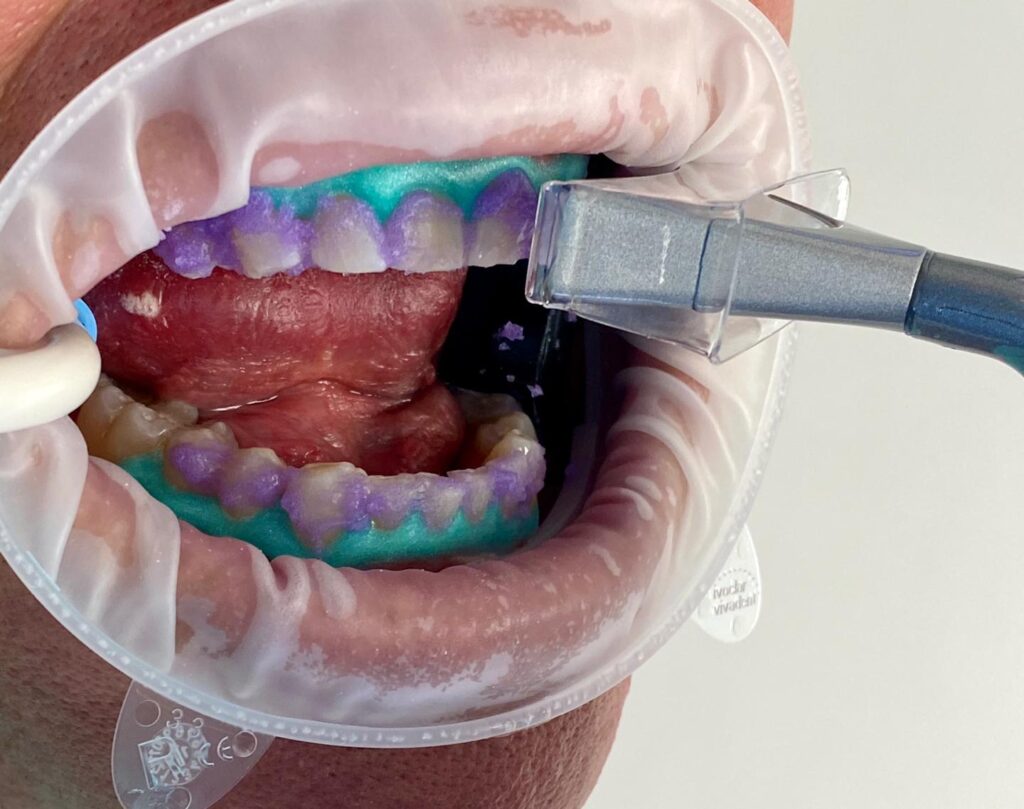Want a Brighter Smile? Here’s How Whitening Teeth Works
Ever caught your reflection and wished your smile looked a bit brighter? You’re not alone. A radiant, clean smile can boost your confidence and even influence how others perceive you. But with so many products and opinions floating around, it can be tricky to understand how whitening teeth really works.
In this article, we’ll break down the science, debunk common misconceptions, and explain why professional treatment is often the safest, most effective route.
Key Takeaways
- Teeth whitening works by breaking down stains through oxidation.
- Professional whitening is safer and more effective than DIY methods.
- Not all stains can be removed; some need alternative cosmetic treatments.
- Results vary based on your enamel, habits, and the method used.
- Professional supervision reduces the risk of enamel damage and tooth sensitivity.
Overview
Teeth whitening involves chemical reactions that target and lift stains from both the outer and inner surfaces of the teeth. Hydrogen peroxide or carbamide peroxide is typically used, which releases oxygen molecules to break down pigmented compounds. This process lightens the appearance of teeth without physically removing any enamel.
How Whitening Teeth Works
Whitening teeth relies on the power of oxidation. When whitening agents like hydrogen peroxide come into contact with your teeth, they break apart chemical bonds in stain-causing molecules. This makes the molecules less visible, giving your teeth a whiter appearance.
There are two types of stains:
- Extrinsic stains: Surface stains caused by coffee, tea, red wine, or tobacco.
- Intrinsic stains: Deeper discoloration within the tooth, often due to aging, trauma, or medication.
Professional treatments can effectively address both types, while most over-the-counter options struggle with intrinsic stains.

Why Professional Whitening Matters
While at-home kits and DIY hacks promise quick results, they rarely match the effectiveness of a professional approach. Overuse of whitening strips or abrasive pastes can wear down enamel and increase sensitivity.
In a clinical setting, concentrations of whitening agents are higher and safely applied by trained staff. This allows for faster, more noticeable results with minimized risk. Moreover, your dentist will assess your oral health to determine whether whitening is appropriate or if another cosmetic solution is better suited.

Teeth Whitening: More Than Just Vanity
A brighter smile often goes beyond appearance. Studies show that people with whiter teeth are perceived as more approachable and confident. It can influence personal and professional interactions, making it a meaningful investment for many.
However, it’s important to manage expectations. Whitening doesn’t change the natural color of your teeth but can remove years of staining. Also, restorations like crowns and fillings won’t respond to whitening agents.
Risks and Counterpoints
Like any treatment, teeth whitening isn’t risk-free. The most common side effects include temporary tooth sensitivity and gum irritation. These symptoms usually subside within a few days.
That said, unsupervised use of bleaching agents can cause more severe damage, including enamel erosion or uneven whitening. That’s why professional oversight is not just recommended but essential.

Perspectives to Consider
Some people assume whitening is purely cosmetic, but it often plays a role in broader oral care goals. For instance, a person who has invested in whitening is more likely to adopt better hygiene habits to maintain their new smile.
Others may worry about the cost. But when you factor in the risks of DIY methods—including irreversible enamel loss or increased dental sensitivity—professional treatment is the smarter long-term choice.

Learn How Whitening Teeth Works for a Brighter Smile
Experience the Leslie Carpenter DDS Difference
If you’re ready to discover how whitening teeth works in a way that’s safe, fast, and personalized to your needs, trust the care of Leslie Carpenter DDS. We provide expert dental whitening services right here at 133 S Hudson Ave, Pasadena, CA 91101, United States. Call us today at (626) 548-2306 to schedule your consultation. Don’t risk your smile on guesswork—get results you can see and feel.
Frequently Asked Questions
How long do pIs teeth whitening painful?
A: With proper oral hygiene, results can last up to 2 years. Avoiding stain-causing foods and smoking helps maintain brightness.
Is teeth whitening painful?
A: Most patients experience mild, temporary sensitivity. Your dentist can recommend desensitizing options if needed.
Can anyone get their teeth whitened?
Not everyone is a candidate. Those with gum disease, cavities, or certain restorations may need to address those issues first.
How many sessions are required?
Many see noticeable results in just one session, but some cases may require multiple visits for optimal brightness.
Do whitening agents damage enamel?
A: When used correctly under professional supervision, whitening agents do not damage tooth enamel.
Conclusion
Understanding how whitening teeth works helps you make an informed decision for your oral health and confidence. While there are plenty of over-the-counter options, professional whitening remains the safest and most reliable path. Are you ready to smile brighter and bolder? Schedule your appointment with Leslie Carpenter DDS today, and let us bring out the best in your smile.

